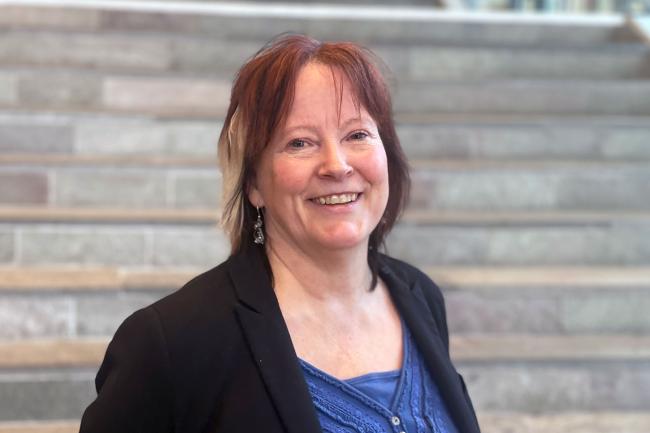Intergenerational encounters at folk high schools – research on learning across age boundaries
2025-11-20What happens in the encounter between different age groups? How do these encounters affect learning and social relations? These are questions that a new research project is focusing on in relation to Swedish folk high schools.
– Folk high schools have an unusually wide age span compared to many other educational institutions and provide an important yet often overlooked arena for intergenerational encounters, says Satu Heikkinen, Associate Professor of Sociology at Karlstad University.
In today’s society, age groups are often separated outside the family, a pattern that, according to previous research, contributes to ageism and stereotypical notions of younger and older people.
– Intergenerational encounters are crucial for counteracting ageism, building social cohesion and bridging generational divides, says Satu Heikkinen. Folk high schools provide a unique setting for this, not only thanks to the wide age span, but also because the teaching methods are based on the exchange between participants with diverse backgrounds. Encounters also occur spontaneously in informal settings such as lunch breaks and shared accommodation.
The project is based on the concept of intergenerational learning, which explores how different age groups learn from each other through shared activities and encounters, and aims to contribute new knowledge on how age groups can learn from one another.
Through observations and interviews at three folk high schools, the researchers will study how experiences of age change through intergenerational encounters, what social relationships are formed, and how power relations between age groups emerge, as well as how these different aspects connect to intergenerational learning.
In addition to Satu Heikkinen, who leads the project, researchers Daniel Persson-Thunqvist and Anders Hallqvist from Linköping University are also participating.
– The project will provide knowledge about how folk high school practices can promote intergenerational learning, says Satu Heikkinen. The findings will also be relevant for other forms of adult education with increased age diversity, as a result of the policy on lifelong learning and demographic changes. Theoretically, the project contributes to developing the concept of intergenerational learning and discussing its significance, including if and how it can reduce ageism.
The project, “Generationsmöten på svenska folkhögskolan: relationer och lärande för livet”, has been granted approximately SEK 3.8 million in funding from the Swedish Research Council for the period 2026–2028.


